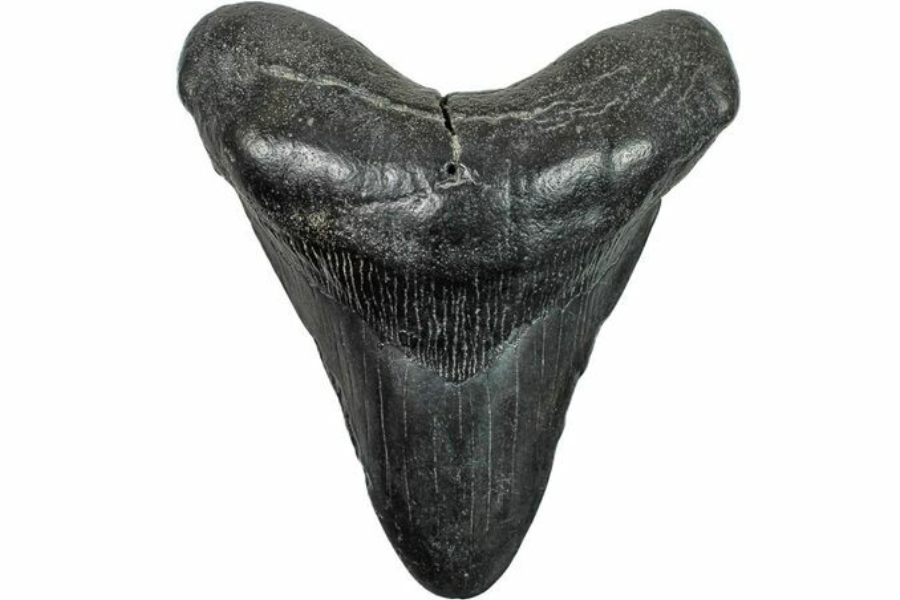Megalodon teeth come from a giant prehistoric shark that lived millions of years ago. Their teeth tell us a lot about what the world was like back then. But finding them isn’t easy. They’re buried deep in the ground or underwater, and you need to know exactly where to look.
The good thing is you’ve got a great chance to find megalodon teeth in Florida. Our state used to be underwater a long time ago, but you still need to know the right spots to look. Just walking around and hoping to find one probably won’t work. You need a plan and some knowledge about where these teeth are most likely to be.
In this article, we’re going to share the proven sites where you can find Florida megalodon teeth. Some of these places include the Peace River, Venice Beach, Amelia Island, Gainesville creeks, and St. John’s River.
The amazing places that we’ll share with you contain lots of other fossils, but megalodon teeth truly take the cake. With the right guidance and a bit of patience, you might just find your own piece of prehistoric history!
What Florida Megalodon Teeth Are
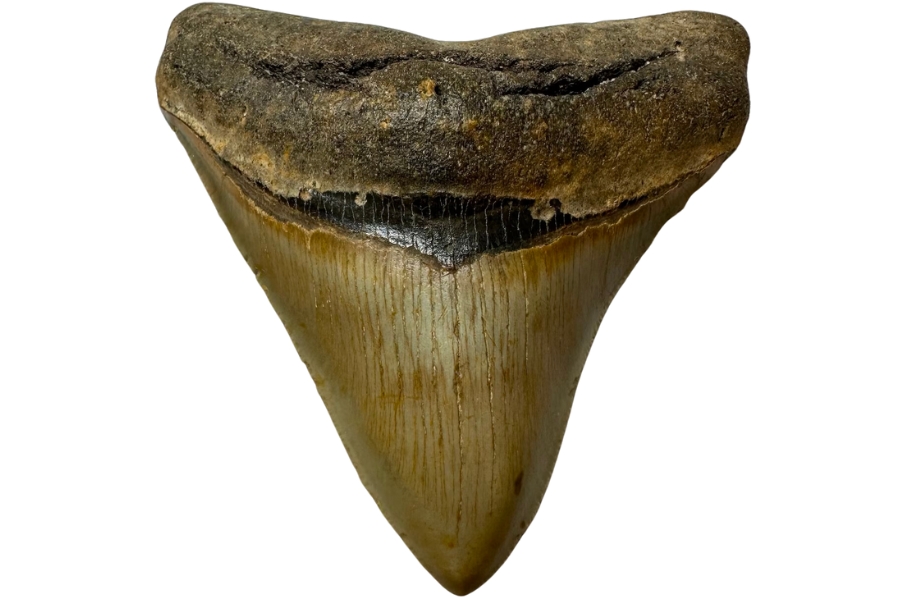
Megalodon teeth are special clues to the size of the pre-historic shark they came from— way bigger than any shark alive today These teeth can be over seven inches long, which can be bigger than your hand.
These teeth are triangle-shaped, super sharp, and have a serrated edge like a steak knife. This helped the megalodon catch and eat its food, which included large sea animals.
These fossils are usually black or dark brown because they’ve turned into stone over millions of years. This process is called fossilization, and it happens when minerals replace the original tooth material.
What makes megalodon teeth so unique among fossils is their size and the story they tell about Earth’s history. Finding a megalodon tooth is like finding a piece of a giant puzzle that helps us understand the ancient world. These teeth show us that the oceans were once home to creatures much bigger than we see today.
Florida megalodon teeth are extra special because of how many you can find. Our state used to be underwater, so lots of megalodon teeth are buried here. You can often find them in great condition, which is not always the case in other places. This makes them super valuable for scientists and collectors.
- The extensive local experience and understanding of our team
- Input from multiple local fossil hunters and fossil groups
- The accessibility of the various locations
- Safety and potential hazards when collecting
- Private and public locations
- A desire to include locations for both experienced megalodon teeth lovers and those who are just starting out
Using these weights we think we’ve put together the best list out there for those who love finding great new megalodon teeth for our collections!
It’s really easy to pass up on great finds without a little guidance. A lot of you are making some mistakes with what you’re throwing away.
DON'T MISS OUT ON ANY GREAT FINDS!
While you're out searching for Megalodon Teeth you're going to find A LOT of other interesting rocks and minerals along the way. The last thing you want to do is toss out something really interesting or valuable. It can be easy to misidentify things without a little guidance.
You absolutely need a good reference guide in order to understand what you're looking at!
We've put together a fantastic field guide that makes identifying 140 of the most interesting and valuable rocks and minerals you will find REALLY EASY. It's simple to use, really durable, and will allow you to identify just about any rock and mineral you come across. Make sure you bring it along on your hunt!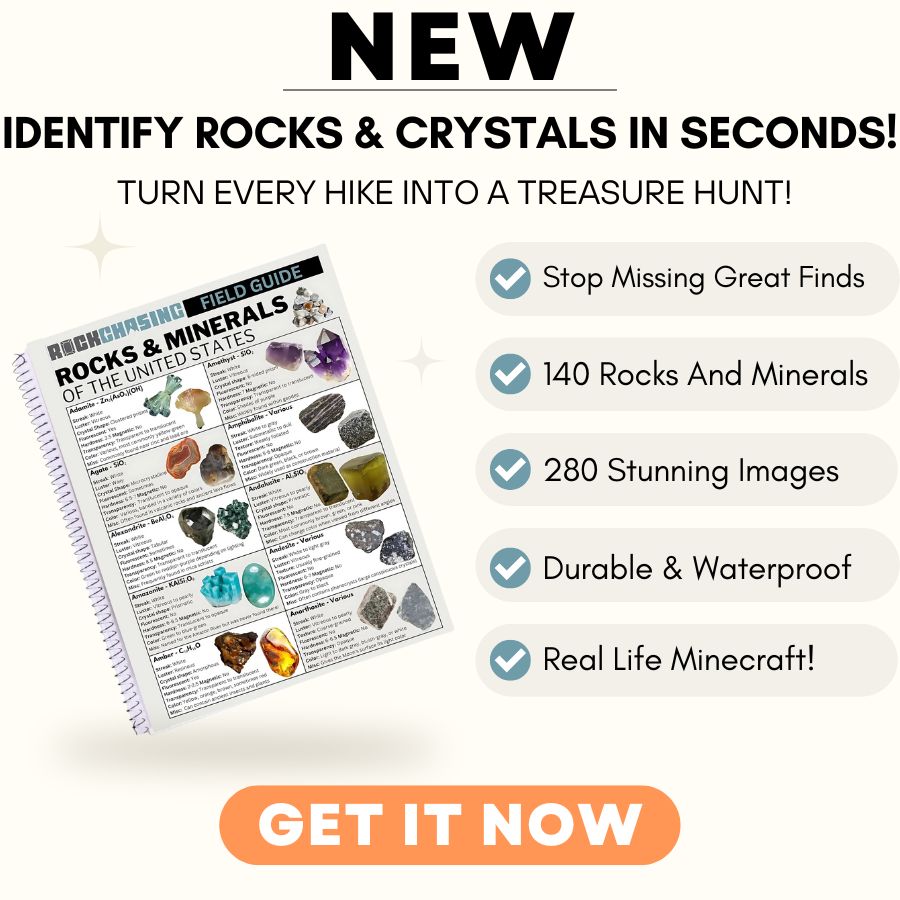
Now, back to the identification specifics:
The Best Places To Find Megalodon Teeth In Florida
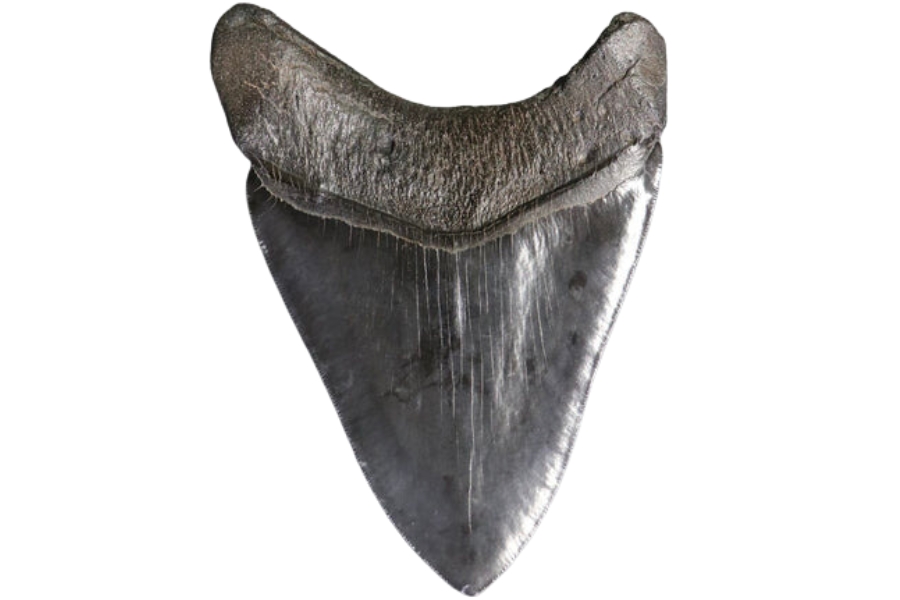
When it comes to fossils, Florida is like a treasure chest just waiting to be opened. But if you’re specifically after megalodon teeth, below are the proven sites where you can find them here:
Always Confirm Access and Collection Rules!
Before heading out to any of the locations on our list you need to confirm access requirements and collection rules for both public and private locations directly with the location. We haven’t personally verified every location and the access requirements and collection rules often change without notice.
Many of the locations we mention will not allow collecting but are still great places for those who love to find beautiful rocks and minerals in the wild without keeping them. We also can’t guarantee you will find anything in these locations since they are constantly changing.
Always get updated information directly from the source ahead of time to ensure responsible rockhounding. If you want even more current options it’s always a good idea to contact local rock and mineral clubs and groups
Peace River

The Peace River is an amazing place, perfect for anyone who loves the outdoors and is curious about the past. It stretches over 100 miles and it’s famous for being a hotspot for finding fossils, especially megalodon teeth.
The river winds through Florida, passing through different landscapes, which makes the journey along it pretty exciting. You’ll see lots of trees, plants, and maybe even some wildlife like birds or fish. The water is usually calm and clear, making it a great spot for wading and searching for fossils.
What’s really cool about the Peace River is that it’s full of ancient treasures. Over millions of years, the water has moved sand and rocks around, hiding fossils like megalodon teeth. Its gentle flow has kept many of these teeth in good shape, so you can really see how big and sharp they were.
Getting to the Peace River is pretty straightforward. There are lots of places along it where you can start your adventure. Some popular spots have parks with easy access to the river, and there are boat ramps if you want to explore by water.
Where to find megalodon teeth in the Peace River
You can find megalodon teeth, among other fossils, if you explore the banks and bottom of the Peace River. You can also collect them in the gravel areas along the river.
DON'T MISS OUT ON ANY GREAT FINDS!
While you're out searching for Fossils you're going to find A LOT of other interesting rocks and minerals along the way. The last thing you want to do is toss out something really interesting or valuable. It can be easy to misidentify things without a little guidance.
We've put together a fantastic field guide that makes identifying 140 of the most interesting and valuable rocks and minerals you will find REALLY EASY. It's simple to use, really durable, and will allow you to identify just about any rock and mineral you come across. Make sure you bring it along on your hunt!
Venice Beach
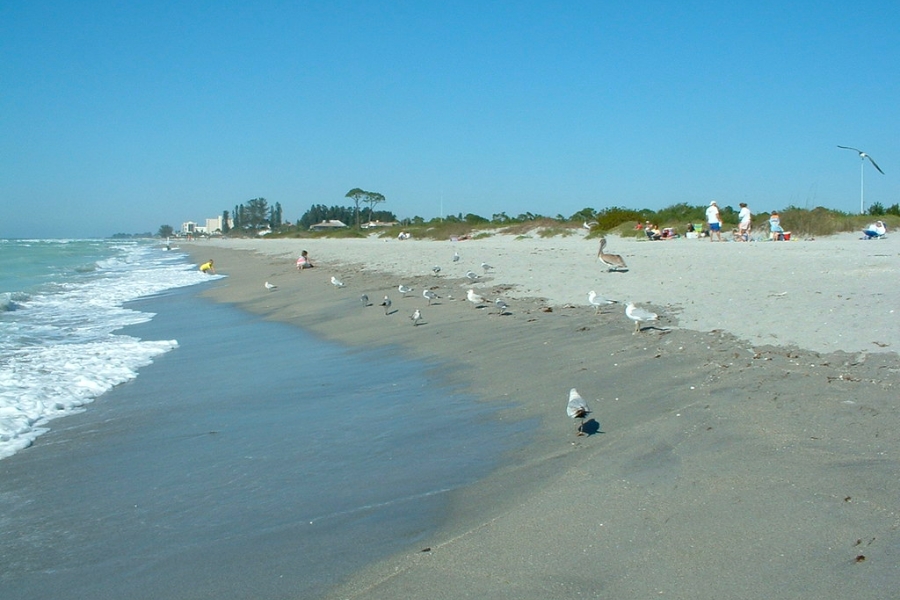
Venice Beach is called the “Shark Tooth Capital of the World.” Imagine a sunny, sandy beach with waves gently rolling in from the Gulf of Mexico. It’s a beautiful place where families, tourists, and fossil hunters all come to enjoy the sun and sea. The beach is long and wide, with lots of space for everyone to explore.
As its moniker suggests, Venice Beach is one of the best places in the world to find megalodon teeth. They wash up on this beach like hidden gems in the sand. The ocean currents and the unique geology of the area help bring these teeth up from the depths of the sea floor to the beach, where anyone can find them.
If you want to visit here, you’re in luck because Venice Beach is well-known and well-signed, with plenty of parking and facilities. All you need is a simple sieve or a sand flea rake to sift through the sand and find the teeth.
Where to find megalodon teeth in Venice Beach
To find megalodon teeth here, you can do a simple beachcombing and look for the tidal line, where the debris brushes up to the sand. There, you may find shark teeth, including megalodon teeth, mixed in with the seashells.
You also have a better chance of finding megalodon teeth in Venice Beach if you sift for them through the sands and shells on the shore, as they often get washed back and forth in the waves.
Amelia Island
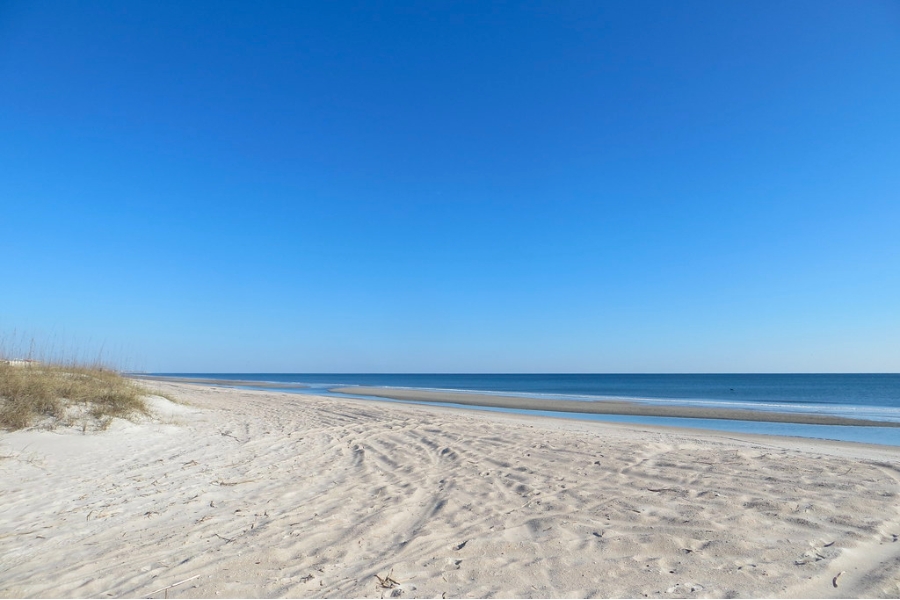
Amelia Island is not just beautiful; it’s also a great spot for finding megalodon teeth. It’s a picturesque island with sandy beaches, clear waters, and lush greenery. Here, you can hear the waves and feel the gentle sea breeze.
Amelia Island is known for megalodon teeth which are pieces of history from millions of years ago. The waters around here have helped preserve these teeth, and they sometimes wash up on the shore or are found in the shallows, hidden among the sand and shells.
The journey to reach Amelia Island is pretty easy. It’s well-known and has good roads leading to it. Once you’re here, you can find lots of spots along the beach to start your search.
Where to find megalodon teeth in Amelia Island
Search through the sands of Amelia Island to find black or brown triangular objects, which is what megalodon teeth look like. You can pay extra close attention to the water’s edge during low tide and to the tide mark areas along the beach.
As an additional tip, we recommend exploring this place for megalodon teeth after a storm as they most probably have been washed up on the beach sands.
Gainesville
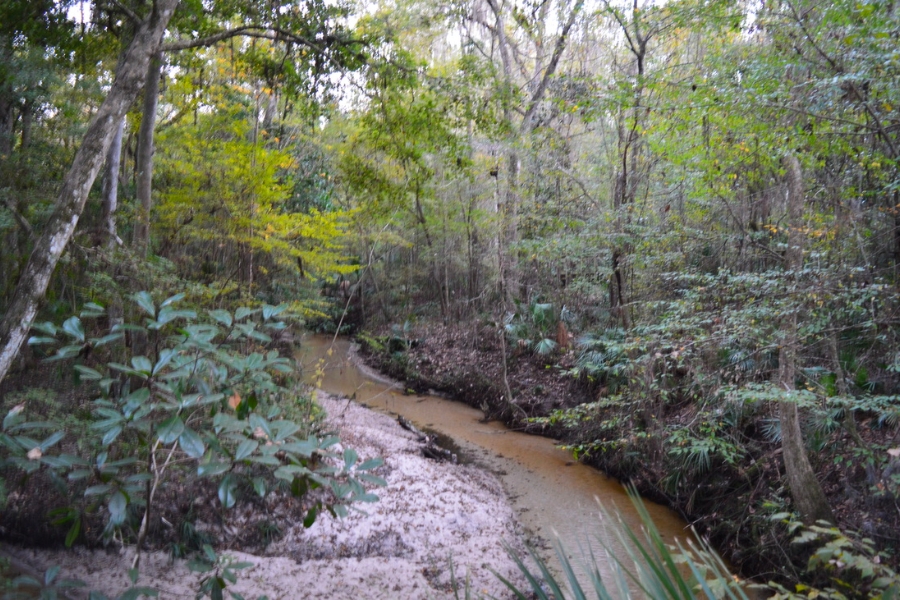
Gainesville may not be right on the coast, but it’s a hot spot for finding fossils. It’s known for its lush greenery, vibrant college town atmosphere, and lots of natural springs and creeks.
The exciting part about Gainesville is that it’s surrounded by areas where you can find megalodon teeth. The area around it used to be under the ocean, and over time, the movement of water and earth has brought these fossils closer to the surface.
Getting to Gainesville is pretty easy, which is great news for you. It’s well-connected by roads and has all the facilities you’d need for a trip. Once you’re here, you can head to the nearby creeks to start your search.
Where to find megalodon teeth in Gainesville
You can find megalodon teeth in the creeks of Gainesville, particularly the following:
- Hogtown Creek
- Alfred A. Ring Park
- Rattlesnake Creek
- Possum Creek
St. John’s River
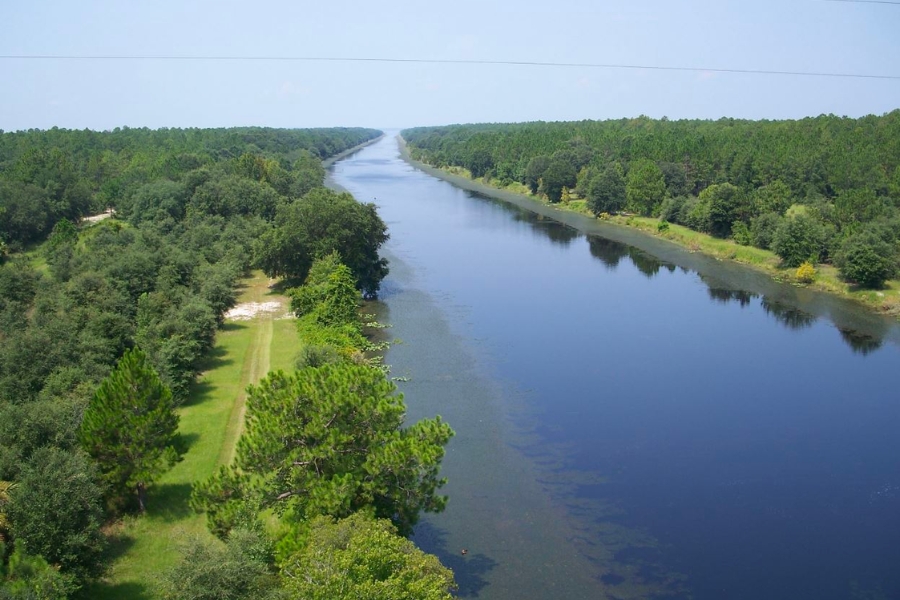
St. John’s River is one of the longest rivers in Florida, winding its way over 300 miles through our state. It’s known for its slow-moving waters, which makes it unique compared to many other fast-flowing rivers. Along its path, you’ll see a mix of wild scenery, like marshes, springs, and lots of greenery.
Now, what’s super exciting about St. John’s River is its potential for finding megalodon teeth. The river’s waters have slowly carried these teeth over centuries, and now they can be found buried in the riverbed or along its banks.
If you want to visit St. John’s River, it’s pretty straightforward. There are many access points along the river, including public parks and boat ramps. This makes it a great spot for families or anyone new to fossil hunting.
Where to find megalodon teeth in St. John’s River
If you want to search for megalodon teeth, having a boat can be a big help, but it’s not necessary. You can explore along the banks or wade into the shallower parts of St. John’s River.
You can also bring along and use a shovel and a sieve to sift through the riverbed material to increase your chances of finding megalodon teeth.
Other Top Places To Find Florida Megalodon Teeth By Region
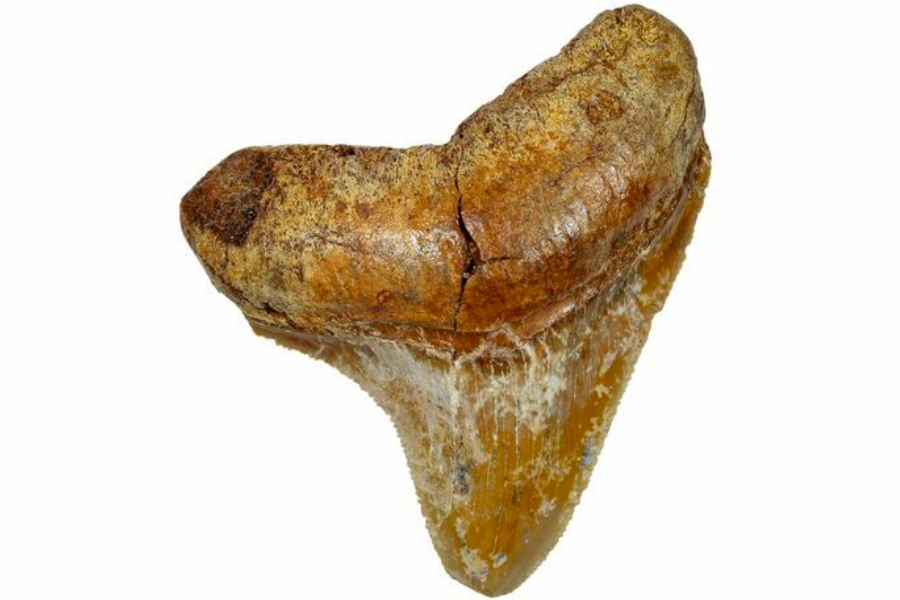
Aside from our top recommended places, below are other proven sites where you can find megalodon teeth in Florida. Take note that some of these are near the ones we’ve just discussed, so you won’t have much hard time hopping from one place to the other.
| County | Location |
| Charlotte | Manasota Key |
| Duval | Jacksonville Beach |
| Hardee, Hillsborough, Manatee, Polk | Bone Valley |
| Nassau | Fort Clinch State Park |
| Sarasota | Caspersen Beach |
| Sarasota | Casey Key |
Common Questions About Megalodon Teeth Hunting In Florida
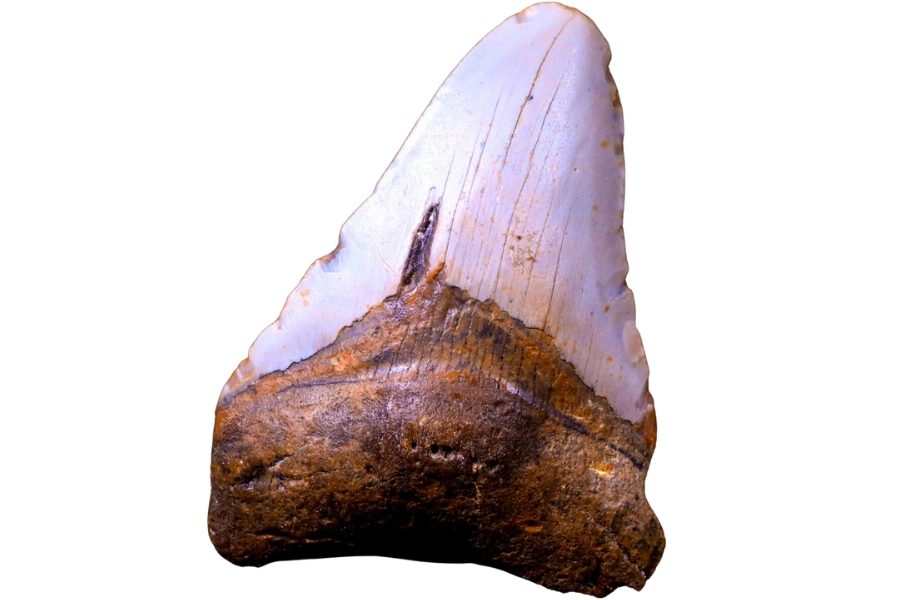
Before you head out here for your megalodon teeth-hunting, we’ll share with you the most common question (and for the right reasons!) when it comes to finding Florida megalodon teeth:
Is it illegal to collect megalodon teeth in Florida?
Collecting megalodon teeth in Florida is generally legal, but there are specific rules and regulations you need to follow.
Remember that while it’s okay to collect these fossils on public lands and waterways for personal use, you can’t do so for commercial purposes without a permit. This means you can hunt for megalodon teeth as a hobby, but you can’t sell them without the proper authorization.
On state-owned lands, like state parks or state-managed beaches, you’re usually not allowed to remove any kind of fossils, including megalodon teeth, without a permit. On private land, you’re allowed to collect fossils, but only with the landowner’s permission, or else you’ll be trespassing.
In some areas, there might be additional restrictions or guidelines to ensure the preservation of natural and archaeological resources. You may check these rules and regulations with the Florida Department of Environmental Protection.
Our Favorite Places To Buy Megalodon Teeth In Florida

Another great way to find megalodon teeth in Florida is by visiting our local fossil shops. Not only will you be able to take a good look at them, you also have a chance to take them home if you want to.
Below are some stores we recommend for you:
- Darwin and Wallace: A Nature & Fossil Store – 1200 E Altamonte Dr. Suite 1010, Altamonte Springs, FL 32701
- Earth Treasures – 207 West Miami Ave W, Venice, FL 34285
- I Hunt Dead Things – Cape Coral, FL
- Paleo Enterprises – 1233 W Fairbanks Ave, Orlando, FL 32804
- Prehistoric – 127 St George St, St. Augustine, FL 32084

